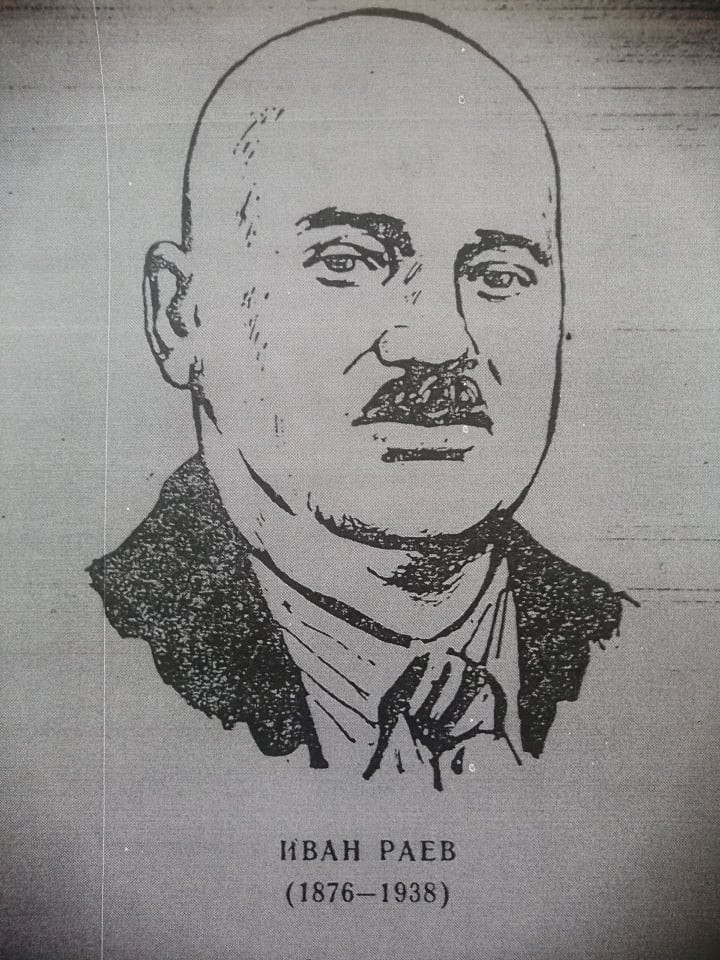At the end of the First World War, tens of thousands of people were struck by a mysterious disease - the so-called “sleeping sickness”, which made the devastated Old Continent suffer even more.
 In 1900, a 24-year-old man from the family of a folk healer from Bulgaria’s small town of Sopot went to Constantinople (present-day Istanbul) to study the secrets of herbs. In Tsarigrad (as the city was known at that time) he spent five years as an apprentice to a famous hodja and returned with a gift from his teacher - a big book with the healing properties of plants and oriental recipes. Two decades later, healer Ivan Raev would become famous in Italy as the inventor of "cura bulgara" or the therapy that eliminates the symptoms of Encephalitis lethargica.
In 1900, a 24-year-old man from the family of a folk healer from Bulgaria’s small town of Sopot went to Constantinople (present-day Istanbul) to study the secrets of herbs. In Tsarigrad (as the city was known at that time) he spent five years as an apprentice to a famous hodja and returned with a gift from his teacher - a big book with the healing properties of plants and oriental recipes. Two decades later, healer Ivan Raev would become famous in Italy as the inventor of "cura bulgara" or the therapy that eliminates the symptoms of Encephalitis lethargica.
"Bulgarian folk medicine has made significant contributions since ancient times,” Dr. Dimitar Pashkulev, a specialist in integrated natural medicine, says. “During the Middle Ages it was difficult to rely on other medicines and then the herbal remedies of the Bogomils emerged. We all know about famous healer Peter Dimkov. It is no coincidence that Ivan Raev was so highly valued in Italy by Queen Elena. His treatment during the epidemic became the leading one when other attempts to treat the disease failed. That is why the queen awarded him the title of doctor, giving him the full right to practice in specially created clinics. In them he achieved stabilization of the sick for a long period of time and his discovery today is called the ‘Bulgarian treatment’.”
For the first time Ivan Raev used belladonna in the treatment of a woman from a village near the town of Chirpan in central Bulgaria. Seeing her not moving and lying with a frozen face, he knew she suffered from “sleeping sickness" and took a handful of roots from his bag. In the morning convulsions stopped and the patient even requested food.
 Soon the healer's achievements, reported by the press, reached the Italian royal court. Personally, Queen Elena of Italy, also affected by the disease, sent a telegram to the embassy in Sofia to find the herbalist who dared to use Atropa belladonna - a dangerous plant that can be deadly but can also save lives. Thanks to Raev’s methods, the terrible symptoms of the disease disappeared and a senior Italian officer on his deathbed was also cured.
Soon the healer's achievements, reported by the press, reached the Italian royal court. Personally, Queen Elena of Italy, also affected by the disease, sent a telegram to the embassy in Sofia to find the herbalist who dared to use Atropa belladonna - a dangerous plant that can be deadly but can also save lives. Thanks to Raev’s methods, the terrible symptoms of the disease disappeared and a senior Italian officer on his deathbed was also cured.
"He used belladonna in combination with other herbs like Acorus calamus and nutmeg for a more complex effect and to reduce the side effects of belladona," says Dr. Dimitar Pashkulev. “Belladonna is a powerful herb and one should be very careful with it. However, Ivan Raev managed to find the exact dosage by treating people who were willing to try it because nothing else caused improvement. At first, the effect was weaker, but over time he managed to find the precise treatment."
After the successful treatment of the queen and the general, Italian King Victor Emmanuel invited the folk healer to help the doctors in the fight against the epidemic. Meanwhile, use of the Bulgarian drug was implemented in several clinics under the supervision of Prof. Giuseppe Panegrossi who had extensive experience in the treatment of encephalitis. He showed great respect to the Bulgarian healer, arriving to this country to invite him personally to his clinic in Rome.
In Italy, Ivan Raev managed to help 1,400 people and doctors from all over the world became interested in his method. Due to the remarkable results in the Rome clinic, his full-size portrait was placed there and the clinic was named after him. A year later, the royal court sent him to Bulgaria with honours and a medal. He settled in the village of Shipka near Kazanlak, where he opened a small clinic.
In 1938 Ivan Raev died of a heart attack on his way to the Plovdiv railway station. Today only the hospital in Sopot and the memorial plaque in front of his house keep the memory of this Bulgarian healer alive.
English: Alexander Markov
30 March marks the end of the most blessed time of the year, as Muslims call the month of Ramadan. This year it started on 1 March, and the most important obligation Muslims have during this 30-day period is to refrain from food, drink and temptation..
Nearly 40 years ago, the Bulgarian Orthodox Church Communities (BOCC) in Western and Central Europe were concentrated in several cities. After our country joined the European Union and with the growth of the Bulgarian diaspora, the Bulgarian church..
The Feast of the Annunciation is the day when God's promise for the salvation of the human soul from the eternal torments of darkness is fulfilled. Its message is that God loves us, says Father Bozhidar Marinov from the "Exaltation of the Holy Cross..
30 March marks the end of the most blessed time of the year, as Muslims call the month of Ramadan. This year it started on 1 March, and the most..

+359 2 9336 661
